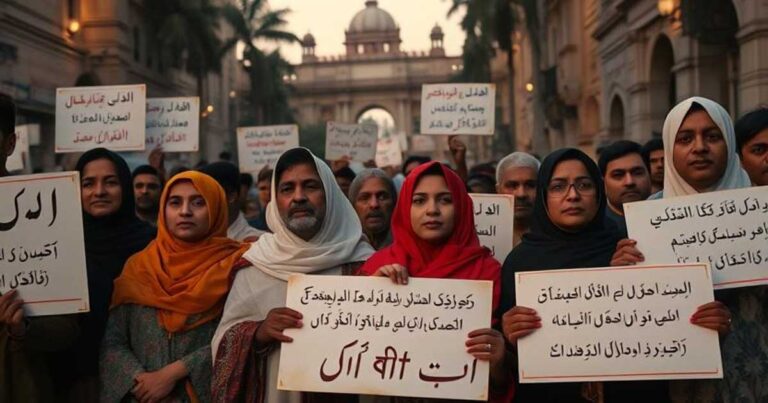A storm is brewing in India over the newly passed Waqf Amendment Bill 2025.
While the government claims this law will ensure transparency and accountability, many from the Muslim community fear it’s a veiled attempt to take control over mosques, madrasas, graveyards, and other religious properties.
As protests rise across several states, the nation is asking —
Is this bill a necessary reform, or a tool to suppress a minority’s rights?
Let’s explore the facts, voices, and politics surrounding this issue.
What is Waqf and Why is it Important?
The word “Waqf” originates from Arabic, meaning a permanent charitable endowment for the sake of Allah.
In India, waqf properties include:
- Mosques
- Madrasas
- Graveyards
- Religious libraries
- Social welfare centers for the poor
These properties are managed by Waqf Boards, which play a crucial role in protecting religious identity and serving underprivileged sections of society.
What Changes Has the 2025 Waqf Amendment Bill Introduced?
According to the bill:
- Non-Muslim members may now be appointed to Waqf Boards.
- The central government has increased authority to audit, investigate, and oversee waqf properties.
- Unused or unutilized waqf land can be taken over and repurposed by the government.
While the bill promotes transparency on paper, many fear it could be used to seize religious lands under bureaucratic justification.
How Are Muslim Organizations and Opposition Parties Reacting?
- All India Muslim Personal Law Board has strongly opposed the bill, calling it unconstitutional.
- Parties like AIMIM, Congress, and TMC claim that it targets Muslim identity and religious freedom.
- Several legal experts argue that the law may violate Article 25 & 26 of the Indian Constitution, which protect religious practices.
Political Reactions and Public Statements
Mamata Banerjee (Chief Minister, West Bengal):
Central Government Spokesperson: Critics, however, suspect that this is more about political optics and vote-bank strategies than actual reform.
What Are Common Muslims Saying on the Ground?
In many towns and cities, Muslims have taken to the streets to protest, chanting:
There’s growing fear that gradual legal steps are being taken to weaken minority control over their religious institutions.
Is This About Reform or Religious Targeting?
| Government’s View | Public Concern |
|---|---|
| Transparency and audit needed | Fear of land seizure |
| Anti-corruption measure | Religious freedom at risk |
| Modernizing waqf administration | Undermining Muslim leadership |
Conclusion:
Justice or Politics in the Name of Reform?
India, as a democratic and secular nation, must uphold the rights of every religious community equally.
If a law, no matter how well-written, causes fear and unrest in one particular community, then the intent and implementation both deserve deep scrutiny.
This article does not aim to create division, but rather to shed light on truth, question power, and protect justice.
Let’s remember: It’s not just about legal amendments — it’s about trust, faith, and the future of India’s pluralism.
